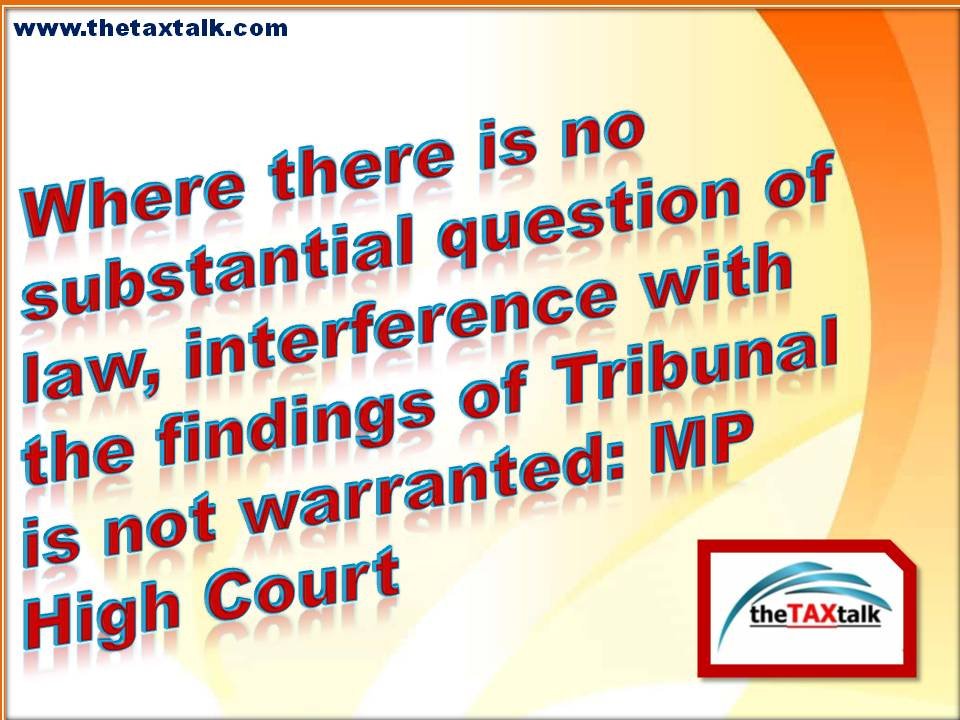![]()
Where there is no substantial question of law, interference with the findings of Tribunal is not warranted: MP High Court
Introduction:
The case, titled Pr. Commissioner of Income Tax Central vs. Mukul Kakar (ITA No. 124 of 2024), centered around whether the additions U/S 68 of the Income Tax Act to the assessee’s income, based on unexplained loans, were justified.
Revenue’s Argument:
1. The Revenue contended that the additions under Section 68 were justified, arguing that the assessee had failed to satisfactorily explain the nature and source of the loans credited in his books.
2. The Revenue highlighted that notices under Section 133(6) were issued to the creditors, and non-responses from 15 creditors were indicative of suspicious transactions.
3. The AO’s decision to add these amounts to the income was deemed necessary to ensure tax compliance and address potential evasion through shell companies.
Assessee’s Argument:
1. The assessee argued against the additions made by the AO. He contended that he had repaid the loans to the creditors before the assessment began and had provided adequate documentation to support his claims.
2. He also pointed out that the AO’s actions were based on incomplete evidence, as several creditors had not responded due to reasons beyond his control. The assessee’s primary defense was that the AO’s additions were unjustified and lacked substantial evidence.
Hon Madhya Pradesh HC held as below:
1. The Tribunal, as the final fact-finding authority, had made a reasoned and well-supported decision. The Tribunal had thoroughly examined the evidence and found no merit in the Revenue’s claims.
2. A substantial question of law arises only if the findings are based on no evidence or if inadmissible evidence was considered. In this case, the High Court found that the Tribunal’s findings were supported by evidence and did not exhibit any perversity.
3. The Revenue’s attempt to challenge the Tribunal’s findings on the grounds of substantial questions of law was deemed unwarranted, as there was no shown perversity in the Tribunal’s order.
4. The writ jurisdiction should not entertain appeals where the fact-finding authority has already given a detailed and reasoned order.
5. The appeal by the revenue is dismissed.
The copy of the order is as under:


